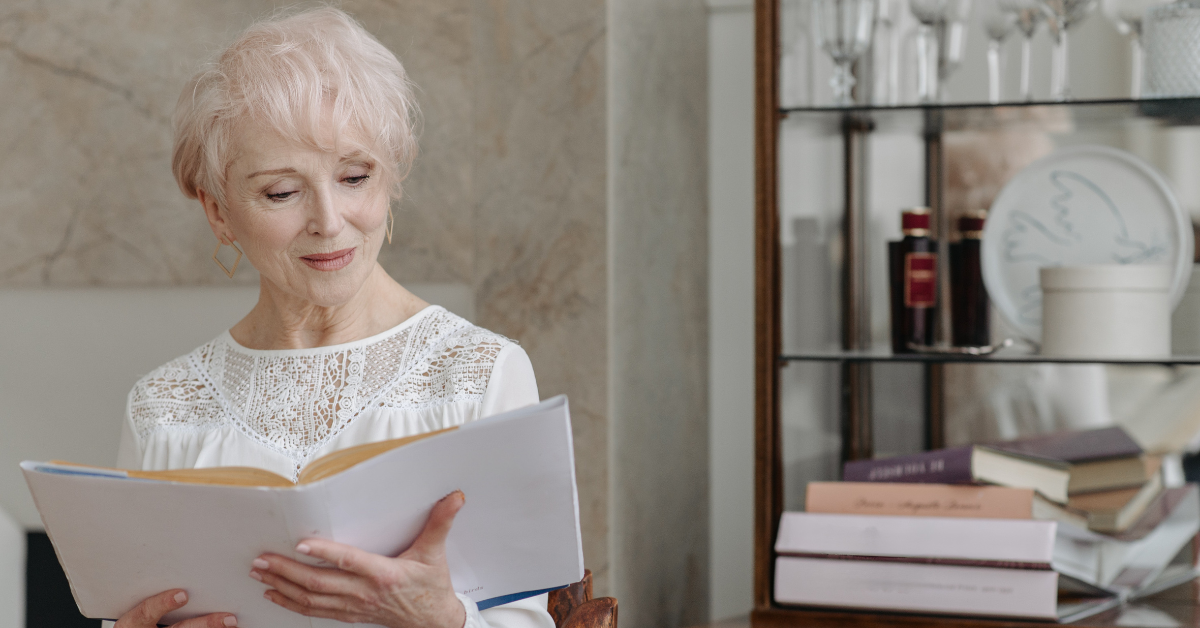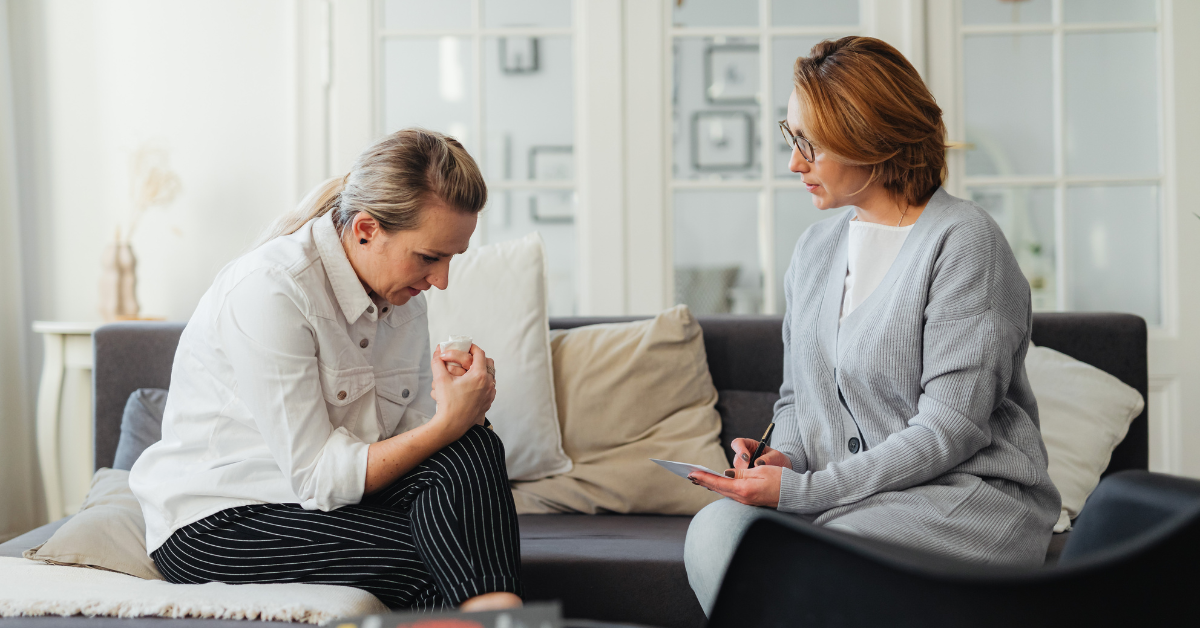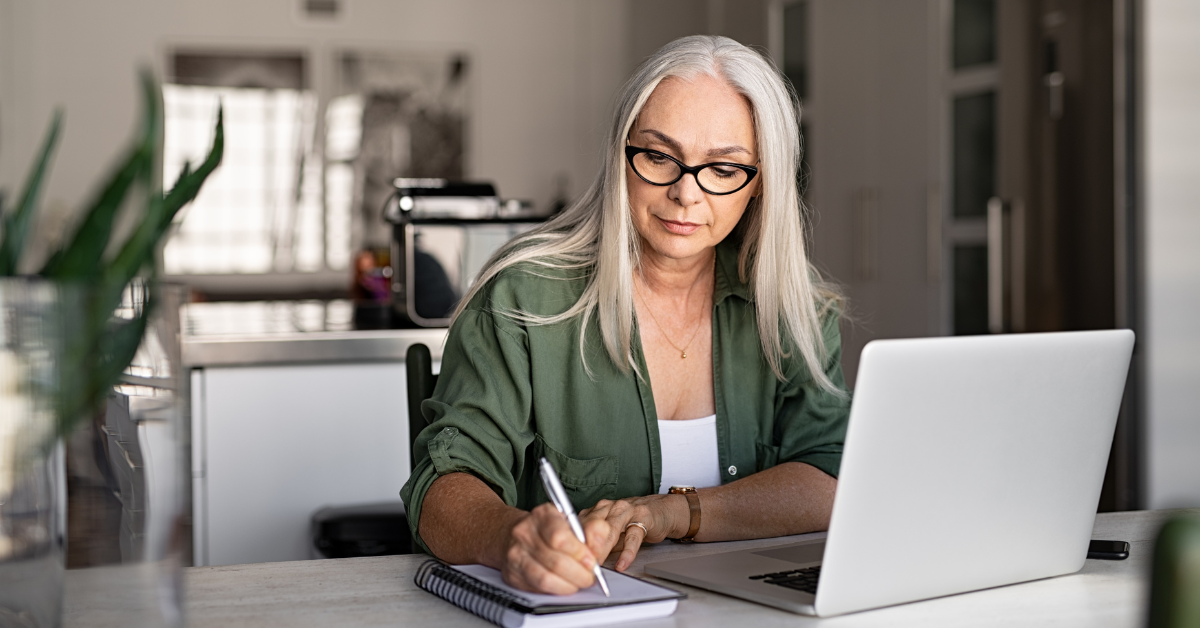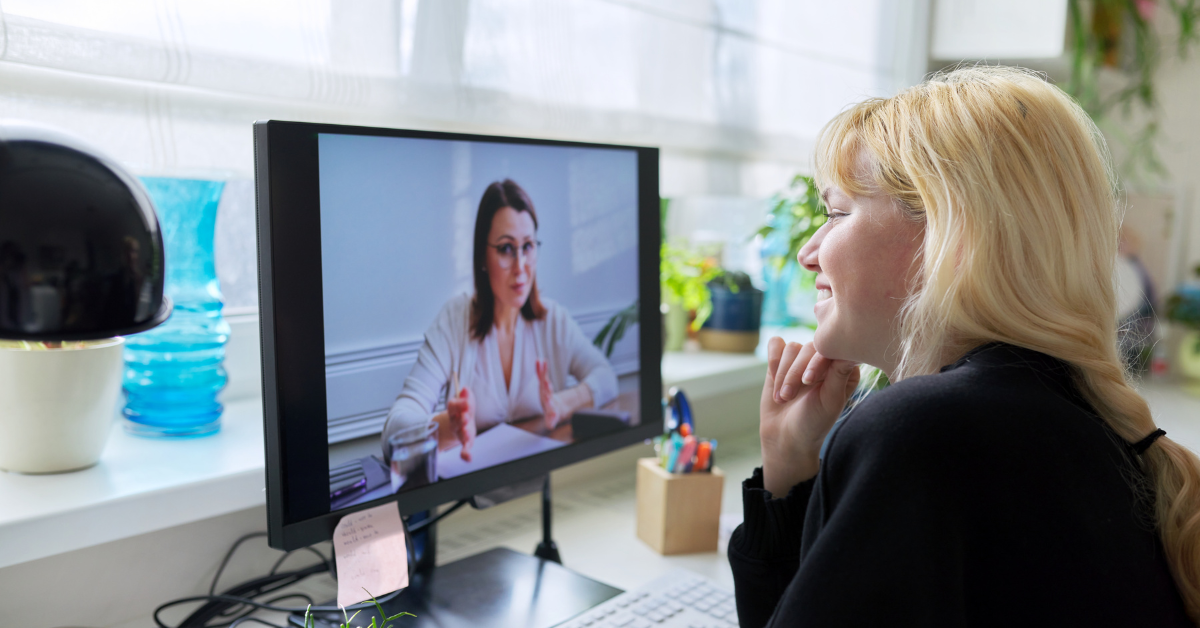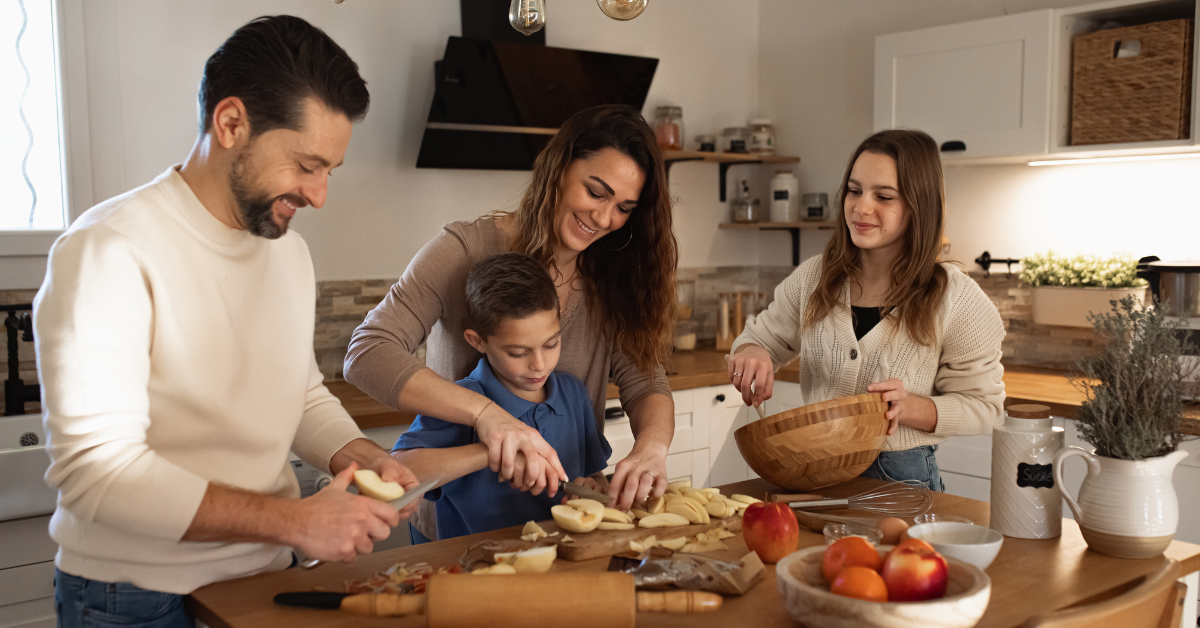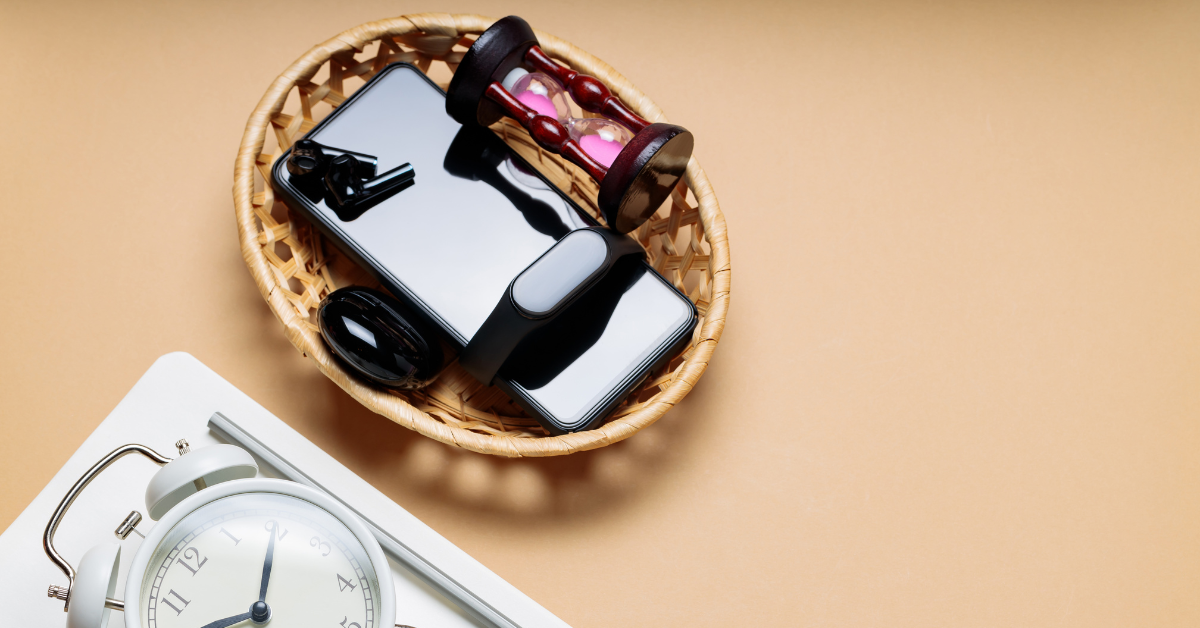178. Abuse Survivor Delivered from Fear and Unforgiveness: Personal Story with Stormie Omartian
Written by Carrie Bock on . Posted in Personal Testimony, Podcast Episode.
As part of the OCD Personal Story Summer Series, Carrie shares a special re-airing of her powerful conversation with bestselling author Stormie Omartian—beloved for The Power of a Praying Wife, Parent, Husband, and other transformative books on prayer. While this isn’t a traditional OCD story, it speaks deeply to anyone who’s carried the weight of trauma, emotional pain, or the lasting impact of growing up with a parent battling severe mental illness. Stormie’s testimony is a powerful reminder that healing is possible—even from the deepest wounds.
Episode Highlights:
- How childhood trauma and a parent’s mental illness can impact long-term emotional and mental health
- The connection between anxiety, depression, and unresolved pain from the past
- Why healing is often a layered process that unfolds over time
- The role of prayer, fasting, and faith in emotional and spiritual healing
- Why support, prayer, and connection are vital when you feel stuck
Episode Summary:
If you’ve been following along with our summer personal story series, this episode takes a slightly different path—but it’s one I believe will touch your heart in a profound way. I’m re-airing a conversation I had with bestselling author Stormie Omartian.
You probably know her from her bestselling books like The Power of a Praying Wife or The Power of a Praying Parent. What you might not know is that behind her powerful words is a deeply personal journey through fear, trauma, and healing that most would never guess.
In our conversation, Stormie opens up about growing up in a home marked by severe mental illness and abuse, her early struggles with anxiety and depression, and the years she spent searching for peace in all the wrong places. Her story is raw, real, and filled with grace.
We talk about the intersection of Christian faith and mental health—how healing doesn’t always come overnight, and how even after salvation, the work of forgiveness and emotional freedom is often a long and layered process. If you’ve ever wrestled with OCD, fear, shame, or deep emotional wounds, you are not alone.
Stormie’s testimony reminded me that God’s healing is not just possible—it’s personal. And it doesn’t always look the way we expect.
There’s so much more to her story—moments that will move you, challenge you, and encourage you to press deeper into God’s love and freedom.
Tune in to the full episode to hear how God met Stormie in the depths of despair and led her into a life of peace, purpose, and prayer. I truly believe her journey will give you the hope you need today.
Related Links and Resources:
Transcript
Carrie: If you’ve been following along this summer, we are in a personal story series and this one is actually a little bit different. It’s not a personal story about OCD. This is actually a re-air of the episode of an interview I did with Stormy Ian. You probably recognize her from the Power of a Praying Series, Power of a Praying Wife, power of a Praying, couples power of a praying parent. You get the idea. She has many, many books out and it’s actually a shocker that she said yes to little me and deciding to come on the podcast, but I’m thankful that she did.
Hello and welcome to Christian Faith and OCD with Carrie Bock. I’m a Christ follower, wife and mother, licensed professional counselor who helps Christians struggling with OCD get to a deeper level of healing. When I couldn’t find resources for my clients with OCD, God called me to bring this podcast to you with practical tools for developing greater peace.
We’re here to bust through the shame and stigma surrounding struggling with OCD as a Christian, sharing hopeful stories of healing and helping you replace uncertainty with faith. I’m here to help you let go of the past and future to walk in the present abundant life God has for you. So let’s dive right into today’s episode.
Normally I don’t put trigger warnings on the podcast if you’ve been listening for a while, because there are so many different things that probably that we talk about that could trigger people. However, I do want to make a mention that topics of child abuse, mental illness in the family and suicide come up in this episode.
Stormy has an incredibly powerful testimony of how God can work in mighty ways and how he brings us to a place of forgiveness. I think that’s one of the most important pieces of the conversation that I want you to hear today. I. Is that if you’ve been really hurt by people, regardless of what they’ve done to you, that God can still do a work in your life to bring you to a place where your heart and mind are changed.
So without further ado, here is that interview with Stormy o Martin. Stormy. I knew that you had written books on prayer and I actually received some as wedding presence. One of the sweetest things that someone did for me was an older lady in my fiance at the Time’s Church, and because we started going to my church after we got married, there was an older woman from his church who sat down with me and got me coffee and we just talked about.
How marriage can be hard. And she gave me the power of a praying wife and she said, this is something that’s really helped me in my marriage and I just wanted to give that to you. And it was just probably one of the best wedding presents that you could get is just some mentorship from someone who’s been there and been in the trenches and gone through some hard things.
So that was really wonderful. And I know that you have several books on prayer for power of a praying husband and for praying for your children and so forth. Yes. I didn’t know until really my assistant brought it to my attention that you struggled with anxiety and phobias earlier in your life. I was curious about hearing that story from you,
Stormie: plus the lady who gave you that book.
I wish I had that book when I first got married. You know, it took me a number of years after I was married to figure. That book out book, I mean, to learn enough to be able to write that book. And so it really changed our marriage when I learned how to pray like that. The power of praying wife and power of praying husband tells you how to pray.
And I was raised by a mentally ill mother. And sometimes when we think of mentally ill, it’s just some kind of, you know, not a big deal as far as, I mean, it’s a big deal for the person, but not a big deal for other people. But for her, my mother, she wasn’t just. A little mentally ill. She was like raping crazy.
I mean, really, she was really abusive, uh, locked me in a closet. Much of my early childhood, very erratic the way she behaved. I mean, she would just slap me across the face out of the blue, and it always shocked me because I didn’t know what I’d done. And then she would block me in the closet and I couldn’t cry.
’cause then I’d get punished for crying. I couldn’t ask to get out because then I’d get punished for that. It was. Scary to live with her. We were on a ranch isolated from the rest of the world, really 30 miles from the nearest neighbor. I was really isolated, um, until I started school, but I was really terrified to go to school, probably a 20 mile ride into school and where the school was, and I was just afraid of the children ’cause I wasn’t around children and they just seemed.
Loud and scary to me. And so it was scary to go home and it was scary to go to school. I grew up with so much fear and anxiety and feelings of futility and hopelessness. Al always afraid of, of what was gonna happen. And my dad, we had a ranch and he worked the ranch. When the weather wasn’t good, he’d go to the logging mills and he would stay there to make money like in the winter or when it was a bad season.
You couldn’t grow crops or you couldn’t, you had to keep your cattle protected and stuff like that. He wasn’t always around, so I was with her and she just constantly talking to the voices. She heard in her heads just so scary. I mean, she wasn’t just like a normal person who had problems. She was a scary person.
I mean, you didn’t never knew what she was gonna do. And so I grew up with these feelings. So strong fear and anxiety and hopelessness and helplessness, and. Just all of those things. I was just afraid all the time. I was afraid to do anything. I was afraid to do something wrong. And when I did get slapped across the face, I didn’t know what I’d done wrong.
It was really bad. And so, so much so that by the time I grew up, even though I got out of the closet, we moved to a small place. I didn’t have any closets. I mean, the closets were two feet wide. You really couldn’t put someone in there. I wasn’t in the closet anymore, but she was. Still nuttier than ever and more abusive.
And she talked about me in degrading profanity, always things about me. Most of ’em are unrepeatable, and being described in those terms is really hurtful. I just felt she was just always mean, and always nasty and always abusive. Always violent and crazy. Always crazy. Talking to all these voices that she heard and shut out.
People are out to kill her. It was nutty you, you never felt any normality. And so what I carried with me from all that was by the time I was out of the house supporting myself and I was still locked in a closet. It was an emotional closet as opposed to a physical closet. I mean it closet went with me everywhere.
I tried everything when I was growing up. To get rid of that pain. I had that pain all the time and always feeling like crying, always feeling like I would never be accepted anywhere. Nothing was ever gonna go right. Nothing was ever gonna be good in my life. And I just wanted to get away from the pain.
And when I was 14, I just swallowed all the pills I could find in my house. ’cause I didn’t wanna wake up anymore ’cause it was so painful. I felt outta place every place I went. She was nutty enough that she mixed all the medicine up. So I don’t even know what I took, but I was very sick. I know that. So I, once I lived through that, I thought I’m just gonna try as my best to do the best I can to get good grades, to develop any talents or gifts I felt like could do, carry off, and hoping that I could become a workaholic and just get out of my mess.
Graduated from high school and then went to at UCLA, I put myself through school. I was working in evenings and on the weekends, I don’t even know how I did it, but I had to do, we didn’t have any money. We were very poor and rats used to run across my bed at night. Often I went to bed hungry and that’s when I was with.
My parents, so they couldn’t provide any help at all. I was trying, putting myself through UCLA and I thought, wow, I, I don’t know if I can make this, but I started getting work in Hollywood on the TV shows. There were a lot of musical TV shows, so I was singing on them and dancing and, and little acting with comedy skits and things like that.
So I was working a lot. I was working seven days a week. I’d work. As much as I possibly could. Two jobs, which is really hard to do. I had two shows I was working on the Glen Camel Show and then another one local show called Loman and Barkley, and that was la. I worked seven days a week and I was really killing myself because I knew I couldn’t rest.
I was so obscure to going to bed hungry. It really affects you as a child and you’re always afraid you’re gonna end up homeless or you know, and I wasn’t going back to live with my mother. I was gonna make this work, but I, I could never shake the depression and the anxiety. And if I got insecure on one of the sets, I would just go into one of the bathroom stalls and just cry and cry and cry so nobody could hear me.
It was so depressed and so anxious and so hopeless and full with staying
Carrie: busy. Kind of one of those ways that you just coped with that anxiety, like, if I just stay on this ster wheel and keep going and going, going maybe.
Stormie: Exactly. Exactly. That’s exactly it. I was too insecure to turn down any work and the work like that comes in, in seasons.
But I worked all the time. All the time. I was always auditioning, always getting jobs, always getting another show, and I was getting worse and worse and worse. I. As far as the depression goes, it wasn’t getting better. ’cause that’s kind of an insecure kind of job anyway. You just feel like you’re only as good as the last day you worked.
You know what I mean? Wow. You were judged every day, what you did and how you came through and was this good or was it not? And I always judge myself so harshly that it was. If I had a good filming thing where we did a, a great taping of a show or whatever, then the next morning I was really depressed ’cause I didn’t know if I was ever gonna work again.
And then I’m going on to the next job and the next and it just, I never got better. It got worse. It got worse and worse and worse. I always thought that I could, you know, I, I got out of the situation with my mother, got out of that. Worked really hard. I could be free of all of that. That didn’t happen. It just got worse.
I think the older I got, not that I was getting old, but I was in my twenties and at that time, if you got in your late twenties, you were like pretty much washed up. You know what I mean? So that was always bothering me too, you know, that I was getting older. Didn’t seem to get any better. I. It wasn’t until everything in my life just collapsed.
All of a sudden my health was bad. My mental health was bad. I was just depressed so badly that I could hardly function and I just, and emotionally just, it was awful. And I just felt like I couldn’t go on anymore. And that’s when one of the girls I was singing with and the TV studio and the recording studios too, ’cause I did a lot of background singing for other artists and stuff like that.
That lady, Terry, she was a little younger than I was. She took me to meet her pastor at the church that it was not far from where we were doing all this work and all the studios and everything. And she introduced me to the pastor and he just described Jesus in a way I could understand. And he said, God has a purpose for your life.
And he has plans for you. I never heard such stuff, really? Never that I had a purpose. Wow. I thought I was just scratching, clawing for a purpose, you know? But God had a purpose for me, and if I would receive him, he would change me from the inside out. I thought, wow, that just seemed too good to be true.
And so I did receive the Lord in his office and my friend Terry was with us too, and I felt hope for the first time. I don’t remember feeling hope before. It’s huge. And then huge. I was, it was really big and I thought, oh. I have a purpose and there’s hope for my life. It’s almost like I saw a light at the end of the long, dark tunnel of my life and I just started coming with, Terry would pick me up every week to take me to church, and I mean, for months and months she did that ’cause I was too depressed.
I could hardly get out of bed. There was a day I didn’t have to get out of bed, but she would come over and get me out and I’d throw something on and she’d take me to church. As I went to church and started hearing the truth being told of how God gives us a sound mind of how he has purpose for us. He has plans for a great plan for our life.
He’s the God of the impossible, and he can do things that you feel are impossible. The hope began to grow, and I met my husband. I had been on a recording session with him, and Terry had introduced me to him when after I got into this church, he came to the church for the first time when I did and this particular church.
And so we met again there. I met him on a record session that Terry had contracted us to do, and when I met him the year before, I didn’t feel good in my own self. To be able to have a relationship with someone that was a really nice person and you know, you don’t wanna just give someone a, a beat up kind of damaged emotionally person.
But so when I saw him again in church, I thought, wow, I wish I’d been going to this church for longer than just a week. We started dating and, and we got married within that year and I was so surprised to have the Lord and have a faith. Full husband who loved me, but I still had the depressions. I still had it.
I couldn’t believe it. I thought that would solve everything,
Carrie: right,
Stormie: but it didn’t. I still had it. I still had the depression.
Carrie: When you get in a healthy relationship after being in such an unhealthy relationship for so long, it’s almost like it’s hard to allow people to love you, and it seems kind of foreign.
Stormie: Yeah, it does. That’s exactly right. That’s a way to describe it. ’cause you’ve not had that before and you think, well they are, they’re all together and everything and I know that I am not, you know, even though I’m not telling people that I’m not, I knew, but I was surprised to find myself so depressed. And so I couldn’t believe it.
And I thought, oh my gosh, what is the matter with me? Why am I. Still depressed. You know, I thought these things would fix it and it didn’t. And so my husband said, why don’t you go to the church? He knew that the church had Christian counselors there. They were the actually the pastor’s wives, and these wives are really boy, they knew the scripture.
They knew what God has for us in the way of wholeness. They knew how to pray. They knew how to fast and pray. And you know how to teach the scripture in a way that would really help you hang on to the truth. And so when I went there, this lady, one pastor’s wife, Maryanne, she talked to me for an hour and I told her everything.
I never told anybody everything. I had told my husband everything about my past, but I never told anybody else. And she said, you know what, we really need to fast and pray. And she said she would fast and pray with me. And she said For three days. And this was really shocking because you know, I hadn’t gone to bed too many times.
I’m very hungry. I was hungry. Sure. And to deliberately go to bed hungry for three days I thought was insane. I really wanted what God had for me and I really trusted her ’cause she was really intuitive and really understood, just understood everything. And so I did. She said, fast for three days and then come back.
I’m gonna pray with you and we’re gonna get rid of this depression. I thought, wow, I, I didn’t know what to think of that. Really, I’d never heard of anything like that, and I didn’t know what possibilities were, but I thought that would be nice to be prayed for, you know? So I did that. I went home and when she said, write a list of all of your sins that you haven’t confessed, I thought, whoa, I, so I did.
I wrote, I just had a list and I just was writing everything that came to my mind, and I was really afraid what was gonna happen when she read it. She didn’t wanna read it. She just laid her hand on that paper. And when we started to pray, I first of all had to confess my unforgiveness toward my mother.
I’ve been trying to forgive her, but I knew it wasn’t done deal yet. I knew that I had so such bitterness in all those years that she was brutal toward me and I had to confess all my occult involvement. I had been searching in the occult. Trying to find a way to God, I couldn’t get it. I just couldn’t. I tried all these things.
I tried hypnosis and astral projection and all these new age oc cult things that I was in, and so I had to confess all of that and say, Lord, I, I wanna serve you. I don’t wanna serve anything else. That’s not of you. And she said, the sooner you get rid of the things that are not of God, the sooner you can move on with God to become all he created you to be.
And the third thing was see, forgiving my mother getting rid of the occult involvement. And I can’t remember what the other third thing was. Wow. I was, I’ll think of it anyway. Gosh, I’ve been talking about this for a hundred years. So. When I did those three things, she put her hands on my shoulders and on my head, and she prayed for me.
She had invited another pastor’s wife. When I made those confessions, it was like God just lifted that depression off of my shoulders. It was the wildest thing, and I tried medicine. It wasn’t, I had like, I hadn’t taken medicine for it. I’d been tried drugs and alcohol and just. Anything. I didn’t do that when I was working.
It’s not like I was addict or anything like that. I just was trying to kill the pain in whatever ways. Sorry. When she prayed for me, I felt the depression lift, and now that’s a physical manifestation of this heavy thing on my shoulders, my head and my chest and my heart felt it lift. It lifted off. I thought, wow.
I mean, I was amazed. I didn’t even know that was possible when that lifted. I kind of expected it to come back the next day, you know what I mean? When I get depressed again, I am coming back here every time I get depressed, but it didn’t come back. It, it’s not like I was never depressed again, you know? Or never anxious again, but it never controlled me.
It had before. Before it was controlling my entire life, the depression, and I couldn’t function. I couldn’t hardly be a good friend, but I always got myself outta bed to go to work. That was a necessity when that thing lifted and it didn’t come back. Wow. If God would do that for me. What else does he wanna do for me?
And then I started thinking about other people and saying, what else does he wanna do for other people? There’s power in prayer. In Jesus’ name, there is power. And to see it manifest was just really mind blowing. ’cause I tried a medicine as well as all these other things. I was trying to medicate it and it didn’t help.
It didn’t help. It just made me feel drugged. Didn’t make me delivered or free. And so I, I saw that you can be free and I tried everything to get free before I had gone to psychiatrists and psychologists and counselors, secular, and they kind of helped. They’re probably what kept me alive for so long, but it just, they weren’t the answer, and I’m not putting it down for anybody taking medicine at all.
Leave me. I feel that that’s a gift from God in itself to have that, to relieve the pain or the symptoms that you have, but. God is the one who can really make you whole and it’s his spirit in you that changes you from the inside out. That was a really an amazing thing to understand that there’s really power in prayer, and again, I don’t wanna discourage anyone from seeing a doctor or a counselor or anything, or take the medicine you need or whatever.
Whatever works for you. Yeah. Let you know that there’s a, a deeper freedom you can have, where you can really be set free from it.
Carrie: I think it really makes sense to me from a psychological perspective about people will say, uh, sometimes that depression is anger turned inward, and so you were really angry still at your mother understanding.
So for everything that happened there, and that was a stronghold in your life, there was some. Bitterness there. And then you had all of those insecurities about yourself, and so there may have been some of that anger towards yourself there that was stuck.
Stormie: Oh, oh yeah. Oh yeah. That’s so true. And after I had that freedom from the controlling aspect of, of depression and anxiety, I had, my first child was born.
All those feelings. Toward my mother, which I thought I’d work through for forgiving my mother was an ongoing process. It would, wasn’t like one and done, forget it. It was every time you thought of something else that she did or, or you talked to her again and she would just attack you on the phone or, or you know, that’s the way she was.
She was just, it wasn’t a normal person. She was just a really loony. All of that came back when my, I brought my first child home. I’m thinking how mother treat her child that way? I couldn’t believe it. That’s the last thing I thought I would do. Anything like that. But then I began to see that there was stuff in me.
When I couldn’t get the baby to stop crying. It would feel like a rejection of me as a mother. I just felt like there was a monster in me that just all this anger and hurt and everything’s coming back up again. I couldn’t understand why I thought I was done with that, but it’s a process and so I, I learned that I had to, when I started to get those feelings in me, I just had to put the baby down in the crib and just go into my room and get on my knees before the Lord and say, God, just take this away.
Take this horrible thing in me away. That just rises to the surface and just almost a rage of anger and. Just, just all these horrible feelings you don’t wanna have. So that was a gradual thing. So I, every time I, you know, I called the counselor at the, I finally told my husband what was going on. I, you know, we talked to Maryanne, the counselor, and she said, just as long as the baby’s not in any danger, he said, just keep doing that.
Just keep asking God to set you free of it as it comes up. Certain things like unforgiveness is like a process, you know? It
Carrie: is,
Stormie: yeah. You have to forgive it. Something else will come up and you go, oh, I felt such resentment for so long for her because I felt like I, I started way behind everybody else.
’cause everybody else got taught and, and loved, you know, and, and taught things and, and taught how to live and how to be with people and stuff like that. And I, I wasn’t. So I just felt resentful about that for so long, but I just kept forgiving her and forgiving her over and over and over. And because she was such a source of my depression and anxiety and hurt and sadness and grief and all of that, it’s just a, those kind of things are a process.
You know, sometimes you can just get a deliverance that’s just instant, like set free from that, from that depression. That day was just, it just lifted. Like, wow, that’s amazing. But. All this stuff would come up when I was with my child and I’m, then I’m resenting her even more thinking. I wouldn’t do like anything like this to my child.
Why would you do that? To me, it was ongoing. I’m telling you it was ongoing forgiveness until I finally was free of it.
Carrie: Yeah. I don’t really believe that healing comes in layers. Sometimes we’re only able to do that top layer and God knows that. He allows us other things to come up and they do.
Stormie: The thing is to not get discouraged when that happens.
When you think you’re free of something and all of a sudden you feel like it’s coming back, like you know, you were never healed, and not to get deceived by that or misled by that because he lets you go down deeper. Your memory. Memory and your experience, you know, whatever is surfacing is what you deal with.
You can’t do the whole thing. It’s so deep. But not to think that you’re going backwards if that happens, because it’s just a new level of freedom that God wants to lead you into. It’s gradual and on
Carrie: sanctification itself is a process.
Stormie: Yeah, it’s, yeah, it’s, it’s, you’re not totally 100% perfect right from the first time you receive the award.
Not at all. It’s just where you’ve got now. You have the tools and you have a God who loves you and, and who wants you to get totally whole. It’s definitely a process. So I just didn’t want anybody to get discouraged when they think, oh no, it’s coming back. So nothing happened. I, you know, I never been set free and it’s not true.
It’s a deeper level that God wants to set you free from.
Carrie: Yeah, absolutely. What would you say to someone who’s really praying and seeking to release their fears over to God, but they still feel afraid and anxious? This is sometimes can be a lifelong struggle for some people. Yeah.
Stormie: Oh, I know, and I, the thing I found was that having someone pray with you, it’s really powerful.
Someone who has great, you know, knowledge of the Lord, who understands what God has for us, who understands that he wants us whole, he doesn’t want us to carry fear. That’s paralyzing. In my book, I have a book called The Power of Praying Through Fear in a lot of. You know, or depression and anxiety, like you said, is, is caused my fear.
I mean, just the fear of, of the unknown. The fear of just something else happening that’s like what has happened to you already? The fear of the memories coming back of some horrible thing that that’s gone on or something someone’s done to you or, or you’ve done to yourself or whatever, and just carries this guilt with those things.
For example, when you take a lot of drugs that really hurt your body and you think, oh wow, I. I really ruined myself. I wasted my health and things like that. You can carry such guilt over that, but you can pick up right there and start right there to live in a way that blesses you and blesses your body and blesses your mental health and all of these things.
And so that’s one of the most important things, I think, is remembering that even though. You can struggle with fear in your life or like phobias. That which is fear taken to the extreme. God says he doesn’t want us to have fear. He says He is given us love, power, and a sound mind, his love, his power and a sound mind he has for us.
And I remember having to say that over and over. God has not given me a spirit of fear. A spirit of fear controls your life. It’s not, I mean, everybody’s afraid of something, but when you, the fear controls your life, you know it. You know it, you feel like you’re almost paralyzed by it. It’s a horrible thing.
And I had to keep saying over, over and over to myself, God has not given me a spirit of fear. He has given me his love, his power, and the sound mind he has for me. I had to say that over and over and over until I got free of that. And the thing is, I explained in my book that. There’s good fear and bad fear.
That’s true. Yeah. God allows fear that leads you to him. If it’s a good fear, it will draw you closer to him, and if it’s a bad fear, it’ll separate you from God. It will cause you to try to handle things your own way or. To not go to God, but to try to find help in within yourself or within, like I did with alcohol and drugs and eastern religions and occult practices and things like that.
So really important to know that God, he does not have fear for you. He doesn’t want you to be paralyzed by fear or controlled by fear, but if it’s fear that he’s allowing to get you on the right path or to keep you from going the wrong way, that’s a good thing. That’s a good thing. So I gotta ask the Lord, what is this fear?
Is this a good thing? Is this gonna protect me or is this something I that you want to deliver me from? And that’s really important to make that distinction between the two. It takes asking him, saying, Lord, show me. Show me.
Carrie: And sometimes we have a certain level of anxiety, and we’ve talked about this in previous episodes, where it’s like you feel like God wants to do something big and it’s beyond you.
Yes. And you feel this certain level of anxiety about it. Like, I don’t think that I can fulfill my calling of Yes. What you’re asking me to do, but like you said, that leads you right back to him to say, okay, if this is of you, then I need you to help me out with this because it feels really big.
Stormie: It’s so right on.
Absolutely right, a hundred percent because that’s the way I felt. I’ve been in way over my head for the past 50 years because he’s always calling me to do something and I go, I can’t do that. I can’t do that. Get someone else. And you’re right. Well, it causes you to be on your knees before the Lord saying, I can’t do this.
You gotta fill me with your spirit, your love, your power, all of these things that you are, God, you have to do this. I, I don’t even know where to start. And he. Does. It’s amazing and, and the more dependent you are on the Lord, the more he can do great things through you. Yeah. So that’s, you’re absolutely right on with that.
Carrie: I’m curious if you could go back in time, what encouragement or hope would you provide to your younger self?
Stormie: Oh, wow. I wish I could. Wow. It was so. Serious. Being with my mother, I could not see a way out. That’s why I tried to kill myself when I was 14. I couldn’t see a way out. I didn’t see how it could ever be any different.
I would talk about the Lord and say, look, God’s got a purpose for your life. He’s put gifts in you and he will develop them. If you surrender your life to the Lord to be able to know that there was a way out of this, that it will get better. I just didn’t see any hope. I tried to make it work myself and I couldn’t do it.
So just to tell me myself that, look, it’s gonna get better. You’re going find a way outta this. I’ve got a way out for you. That would be the biggest thing. And just to know about the Lord earlier, I never did. I mean, I never did until my friend Terry in the studio. Talk to me about the Lord and I mean, she talked about, and from the standpoint point of what he’d done in her life, she wasn’t saying, you need to do this.
She was not like that. She was just showing me what her church was like. It was just telling me. And when we have breaks, you know, on the record sessions and stuff, she’d just tell me, this is what we did in our church last night or yesterday and, and it’s really powerful. You’ve gotta come sometime and just see how the Lord moves.
And I kept saying, well, thinking, well, that’s really nice for her, but I’ve tried everything and nothing works. Knowing the Lord earlier would’ve been great, but I’m so glad I did. I did. She let you know, led me to her pastor and he helped me to understand who God was and who Jesus is and all of that.
Carrie: Yeah.
That’s the greatest gift that we could ever give to somebody.
Stormie: Yes, it really is. It really is. The lady who led me to the Lord, she just died a couple weeks ago and it was so sad. She had cancer, had found healing from it, and then it all came back. You know how I hear that story and it was so sad. I I, because she was younger than I, I am and I didn’t.
She would die before I would. She was very healthy and very terrible about what she ate and just, you know, very led a great life and had a great godly family and everything, and it was so sad. And when I got up and they wanted us to do a, a video to play it at her memorial service. Because we couldn’t go there.
The thing I said was if I hadn’t known her, I don’t know what would’ve happened to me. ’cause I was planning a second attempt at suicide this time. I was gonna make it, it was gonna work. You know, I was gonna take enough pills and to do the job. Right. And the fact that she intervened. She said, I’m not, you can see you’re not doing well.
Could just come with me to meet my pastor. What have you got to lose? You know? She said, I thought, well, you know, I’m about ready to get enough sleeping pills to end it. I might as well just go see what he has to say. And if she hadn’t done that, and if she hadn’t come pick me up every week, every Sunday, every time, I mean, for so long I wouldn’t meet her today.
Really. She was so selfless and so kind, and that was just so great. But I’m so glad I knew her and, uh, she’s gonna be greatly missed by so many people. She saved my life so grateful. I, I told her before she died. I really hope that my mansion in heaven is close to yours.
Carrie: Yeah. Oh, that’s really sweet.
Stormie: It was really touching. I was so glad I knew her for 44 years. She was a really close friend.
Carrie: Well, thank you so much for taking some time out today to talk with us. Oh, yeah. Yeah. I think this is gonna be really encouraging and hopeful for our listeners who are struggling.
Stormie: Oh, I hope so.
I believe me. Anyone who’s listening right now, who’s struggling just with emotional pain and hurt and the things that happen to people on how they’re mistreated and. Or how they were abused either as a child or later on or whatever. My heart goes out to them because I know how hard it is. But I just wanna say there is hope.
There is hope to be free of it. It can happen and, and it will just don’t give up.
Carrie: Do you know someone who needs to hear this message of encouragement? Will you do me a favor and share this podcast episode with them? If you were blessed by it, I know someone else will be too.
Until next time, may you be comforted by God’s great love for you Christian Faith and OCD is a production of By the Well Counseling.
Opinions given by our guests are their own and do not necessarily reflect the views of myself or by the well counseling. This podcast is for informational purposes only, and should not be a substitute for seeking mental health treatment in your area.
